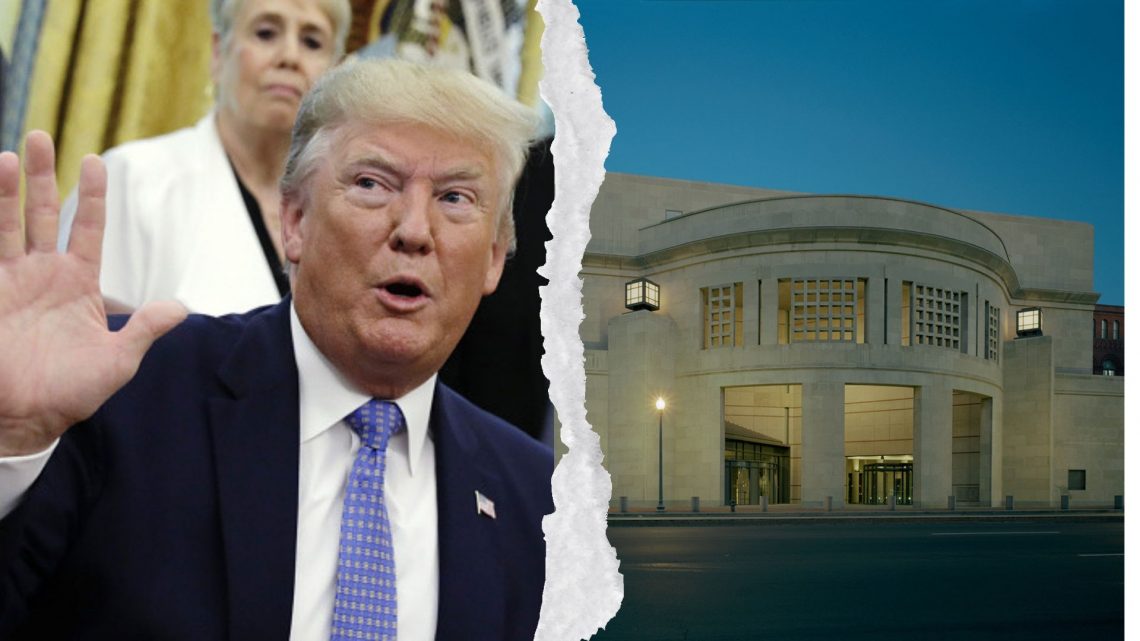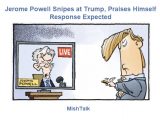
Holocaust Museum Slams Concentration Camp Comparisons
June 25, 2019On Monday, the U.S. Holocaust Memorial Museum in Washington D.C. issued a statement denouncing any comparisons between the Holocaust and “other events.” The statement came a week after comments made by Rep. Alexandria Ocasio-Cortez, in which she described the detention centers holding children at the U.S. Mexico border as “concentration camps” after reports came out describing the inhumane conditions.
“The United States Holocaust Memorial Museum unequivocally rejects efforts to create analogies between the Holocaust and other events, whether historical or contemporary,” reads the museum’s statement.
Many responded to the statement on Twitter calling it “shameful” and “a disappointment.”
“What does ‘Never again’ mean to you? As a Jew, I thought it meant that we must be vigilant because this CAN happen again—and not just to Jews,” responded journalist Mark Harris on Twitter.
Some have questioned why the museum, which has the hashtag #PreventGenocide in its Twitter bio, would part with the many Jewish historians and people who, like Harris, have come out in the last week to say “Never again is now,” using the phrase which has historically served to commemorate the Holocaust. On Monday evening, Twitter user @MExasperated, who is Jewish, attempted to answer the question by pointing out that the Holocaust Museum’s chairman, Howard M. Lorber, was not only appointed by Donald Trump in 2017, but is a “longtime family friend” of the president.
According to ABC News, Lorber donated $100,000 to the Trump Victory Committee, a joint fundraising committee for Trump and the Republican National Committee.
“I honestly don't think it's a big conspiracy,” they said. “I think these assholes just all run in the same circles and protect each other.”
Jewish historian Anna Lind-Guzik also believes that Lorber’s position at the museum helps explain the institution’s recent statement. “The statement makes more sense knowing that the institution is being run by a Trump appointee,” she said. “Trump rules through personalized power, and demands loyalty in exchange for positions.”
AOC’s comments have created a divide among Jewish Americans: While some believe that calling the detention camps on the border “concentration camps” is both accurate and necessary, others believe these comparisons dishonor the victims of the Holocaust, who endured incomparable atrocities. The Jewish Community Relations Council penned the congresswoman a letter which read, “We are deeply disturbed by the language used in your recent Instagram live video which seeks to equate the detention centers on America’s southern border with Nazi-era Concentration Camps [sic].”
“6 million Jews were exterminated in the Holocaust.You demean their memory and disgrace yourself with comments like this,” tweeted Liz Cheney in response to AOC.
In the past week, AOC has stood by her statements, pointing out that the camps at the border “fit squarely in an academic consensus and definition [of concentration camps],” and asserting that calling something a concentration camp is not the same as comparing it to the Holocaust. One of the U.S. Holocaust Museum’s own historians, Dr. Becky Erbelding, quote-tweeted AOC’s comments last week, affirming her use of the term with “A Geppetto checkmark,” a term used by fact checkers to label a statement as true.
Lind-Guzik said that the museum’s statement is ultimately harmful. “I understand the impulse to protect the memory of the Holocaust, but stifling discussion of current human rights abuses on the border is not the way,” she said. “We can acknowledge what made the Holocaust unique while also recognizing that it doesn't exist in a historical vacuum. The Nazis did not invent concentration camps, nor did the practice of building them end with the Third Reich.”


